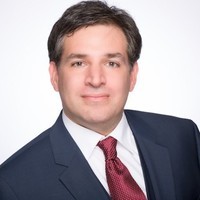When faced with legal action by “patent trolls” -- entities that own patents without intending to use them -- companies can be tempted to resort to an out-of-court settlement.
But such evasive measures only create a vicious circle, according to a top official of a US-based company against patent trolls, also called non-practicing entities.
“Conforming to these NPEs’ demands for money will only further incentivize their behavior,” Shawn Ambwani, COO and co-founder of Unified Patents, told The Korea Herald.
“Once an NPE sees that a suing gesture garners cash, it is sure to come back for more. This is also likely to encourage other players to follow a similar course of action.”
Unified Patents, founded in 2012, is a member-based deterrence company that calls itself an “anti-troll” in the market.
Under the slogan “challenge bad patents, never pay, improve patent quality,” the company seeks to reduce the number of NPE assertions in the technology field.
The company’s most recent accomplishment was a petition against Sportbrain Holdings which had filed over 100 lawsuits over extensive claims concerning Internet-connected wearable devices.
Earlier this month, the US Patent Trial and Appeal Board issued a final decision to invalidate all of Sportbrain’s claims concerning US patent 7,454,002 -- titled “integrating personal data capturing functionality into a portable computing device and wireless communication device.”
The decision saved costs for some 80 companies in the fitness and mobile wearable sectors -- including Apple, Samsung, LG, Microsoft, Garmin and Fitbit.
The individual amounts claimed were relatively small but Unified Patents decided last year to move straight on to legal action, filing a petition on behalf of the companies for review of the patent by the US Patent Trial and Appeal Board.
“Even after the case was instituted (at the Patent Office), Sportbrain continued to file lawsuit after lawsuit, which showed that it was just after whatever cash it could get,” Ambwani said.
This kind of suing spree is exactly the kind of “bad behavior” that Unified is resolved to eradicate, he said.
“We’re are not saying that companies that hold valid patents do not deserve to exploit their rights, but it is our belief that legal practices should be based on good patents and those that abuse bad quality patents in bad faith should be deterred,” he said.
Another typical example of malicious NPE is Uniloc, a US-based company known for its frequent lawsuits against tech giants. Last year, it filed 14 suits against South Korean companies, including LG Electronics, challenging a core patent in the conglomerate’s smart home platform system.
“Uniloc is tricky to deal with, as it skillfully splits up its portfolio into different campaigns, challenging different patents against different companies,” Ambwani said.
“Their tactic is to make it difficult for defendant companies to unite in joint action.”
It is especially the small-sized firms with limited resources that are likely to suffer the most from these NPE-initiated patent battles, the official added.
“The extensive costs and intricate procedures may discourage small businesses from R&D investment and hiring, which will eventually hurt innovation in the technology sector,” he said.
Despite the challenges posed by expanding NPE activities, Unified makes it a stern rule never to settle for money.
“(Non-trial) settlements account for over 50 percent of our cases, but they usually involve agreements such as to never file any challenges afterwards,” the COO said.
“Also, as we act independently from our members, we are never put into a conflicting position of negotiating a licensing deal between NPEs and defendants.”
The “never pay” principle is also what marks Unified from rivals such as Rational Patent Exchange and Allied Security Trust, he added.
“(Their) business model seeks to minimize risks and costs, so they would at times purchase patents and pay for licenses, without necessarily evaluating whether the involved patent is good or not,” he said.
“But Unified is unique in that its core goal is to fundamentally deter NPE activity, which is why it would never pay.”
The anti-troll company currently has a number of South Korea’s leading tech companies in its membership, Ambwani added, though he refrained from specifying names.
“Our members may or may not choose to make public of their Unified membership,” he said.
“For those that do, the notice may act as a warning against NPEs, letting them know that there is a patrol behind them that would never settle for money.”
By Bae Hyun-jung (
tellme@heraldcorp.com)
The Korea Herald is publishing a series of interviews on experts in the intellectual property sector. This is the third installment. -- Ed.







![[Today’s K-pop] Blackpink’s Jennie, Lisa invited to Coachella as solo acts](http://res.heraldm.com/phpwas/restmb_idxmake.php?idx=644&simg=/content/image/2024/11/21/20241121050099_0.jpg)